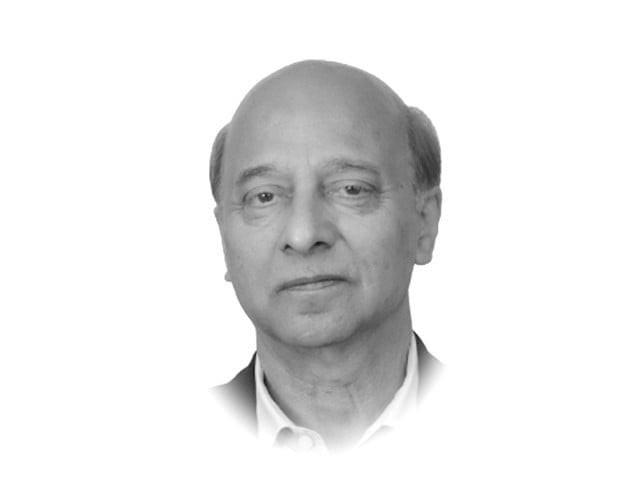Generational shift in Chinese view on Pakistan?
Chinese leadership is now critically weighing "every single word" uttered by their Pakistani counterparts.

Is CPEC dead? No, but the spirit behind CPEC has certainly slowed down to a crawl, if not dead.
This statement may sound blasphemous to countless Chinese and Pakistanis, particularly those invested in CPEC. But fast-evolving global geopolitical realities, China's western challenge, an impending possible tectonic shift in the US policy under Donald Trump, and a real leadership crisis in Pakistani demand a reality check. Additionally, China, under a relatively younger generation, represents a country different from the China of the 1960s to 1980s.
Let us revisit an unusual incident on October 30 that caused a near-diplomatic spat.
"It is very unacceptable for us to be attacked twice in only six months, and these attacks have also caused causalities. President Xi cares about the security of the Chinese people and puts people's lives first. He especially cares about the security of the Chinese people in Pakistan."
This intervention by the Chinese Ambassador, Jiang Zaidong, at the end of a seminar in Islamabad in response to extremely unguarded words that Foreign Minister Ishaq Dar attributed to President Xi Jinping marked, perhaps, the beginning of a new phase in the Sino-Pakistan relations.
Dar incited the Ambassador into reaction with remarks he shouldn't have uttered publicly.
"Chinese are very clear no matter how lucrative an investment is anywhere, if the security issue is there, they do not send Chinese personnel. Your country is the only exception. This is what the Chinese leadership told the Prime Minister of Pakistan in my presence," Dar had asserted.
Until then, it was almost unthinkable for any Chinese diplomat to snub a Pakistani minister publicly, but an ever-evolving, economic-centric, matter-of-fact world is probably enforcing a recalibration in attitudes. The Pakistani MOFA reaction to the Ambassador's intervention provided even greater cause for concern in Beijing, and not without reason. Never before did diplomats of the two countries go public with such an expression of "displeasure and discomfort" over what the other side stated.
What has changed?
All the veterans between 1949 and the late 1970s - from Chairman Mao Zedong, Zhou Enlai, Jiang Zemin and Hu Jintao to inter alia - have exited the world or are out of the power matrix. Almost the entire close circle around the great reformer Deng Xiaoping, too, is out of the power equation.
President Xi Jinping does not represent the Deng Xiaoping era, nor can he be seen as a real successor to Deng, who represents the team's 60-year-leadership, almost all of whom were mostly in their 20s when Deng was in the lead.
"The younger generation is not likely to hold the 'patiye' (Iron Brotherhood) as sacred as the older generation did for multiple reasons. Their view is shaped by the state of security, financial hold-ups (power sector circular debt) and oscillating Pakistani policy-making," said a senior Chinese scholar who knows Pakistan very well but doesn't want to be identified.
Xi had just started his leadership role in a small county in Hebei province during the Deng era after graduating from Tsinghua University. In 2012, when he became the Secretary General of the Communist Party, Xi inherited an economically rising China and set anti-corruption, poverty alleviation and restructuring as his goals, and chose people around him who would be dedicated to his agenda of change. And he has brought about big changes in the socio-political outlook and the political economy focused on a corruption-free, merit-based, matter-of-fact governance.
The generations from Mao to Deng Xiaoping, Hu Jintao, Jiang Zemin had all reserved a special space for Pakistan. The primary reasons were mutual cordiality, border dispute settlement and Pakistan's facilitation in connecting China with the US through a secret flight from Islamabad that had taken Dr Henry Kissinger, the National Security Advisor to President Nixon, to Beijing in July 1971.
Even today, many Chinese leaders highly esteem the relationship with Pakistan. They often prioritise the participation of Pakistani ministers and diplomats in multi-lateral gatherings - be it regional conferences or exhibitions.
But, says a diplomat, Chinese leadership is now critically weighing "every single word" uttered by their Pakistani counterparts. Promises of "fool-proof security for the Chinese" are being assessed carefully and the establishment's actions on the ground are being watched. They are fed up with the "we will take the first bullet in your defence" narrative.
'No, please don't take bullets for our sake; every single life is precious, and we don't want any life lost,' say, Chinese officials.
'All we need is to prepare well to preempt human losses. And we want evidence of that preparedness,' they insist. 'Unfortunately, lapses and gaps in security management in several attacks on Chinese interests have not only unnerved but also extremely annoyed the Chinese security establishment,' say these officials, most of them wary of the rhetorical posturing of Pakistani policymakers. 'We know who the enemy is, but what are you doing to blunt it before it strikes?' they ask.
That sentiment travels both vertically and horizontally within the political-economic circles, elevating concern and adding to the filters being applied to scrutinise Pakistan's performance on security and economic fronts.
This has stalled further CPEC investments - that total $24.7 billion so far. The zeal behind CPEC seems to have faded, but the good news out of Beijing is: China will not turn its back on the Iron Brother despite growing frustration with its repeated commitments on security and financial issues.















COMMENTS (2)
Comments are moderated and generally will be posted if they are on-topic and not abusive.
For more information, please see our Comments FAQ